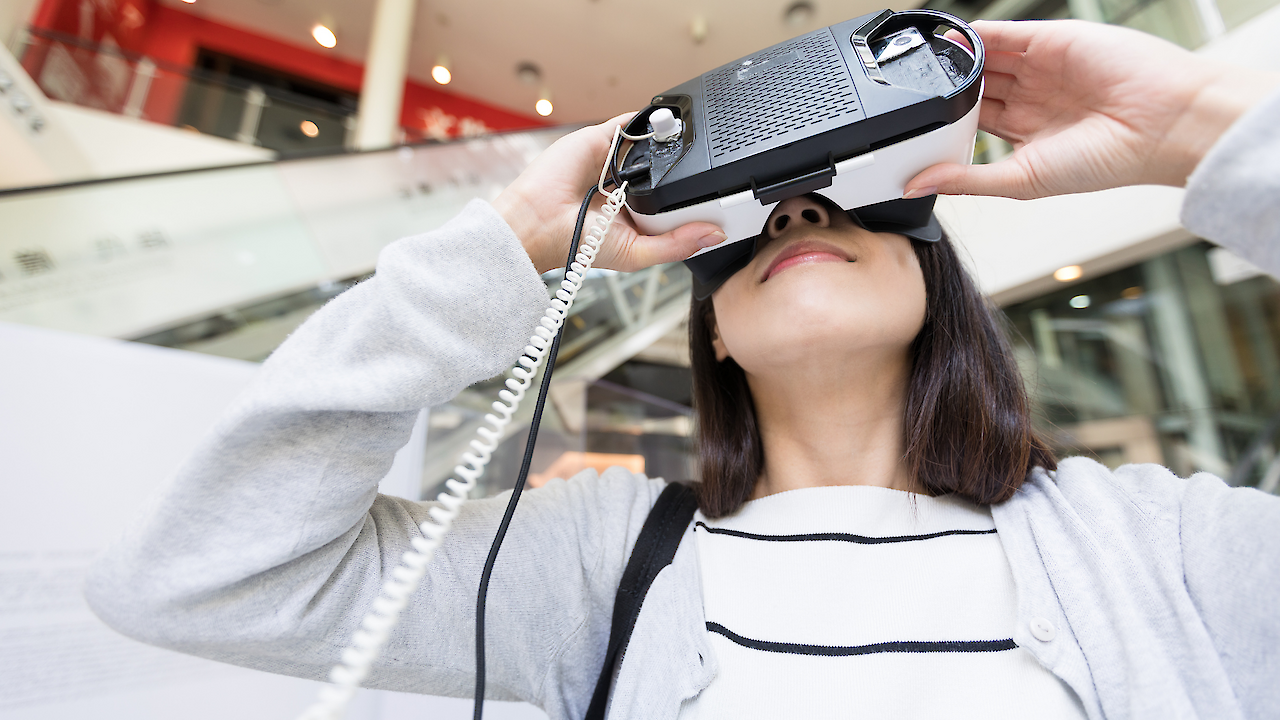
Exhibitions, conferences, and seminars went digital nearly a decade ago, starting in America and gradually spreading to Europe. Today, organizers recognize the importance of embracing the online environment to maintain an event's brand. This digital transformation is now becoming customary.
This hybrid approach, which the OnlineExpo event platform is built for, combines traditional in-person activities with the online environment, enabling simultaneous brand presentation, marketing, statistics collection, and sales while expanding the audience reach.
The possibilities offered by such an online environment:
In addition, the virtual event allows the visitor to:
Externally, virtual events can be completely different. For example, some organizers present their event as an online store catalogue. This is convenient for those visitors who know what they are looking for. However, when attending a real fair or other event, people often want to come up with ideas but don't know what to look for.
Let's imagine a dog show. Often a visitor does not just go to look at the dogs that are announced in the catalogue, but to find the most favourite breed or dog among the many breeds. It often happens that you look for one thing and find another.
Trade shows and other similar events should be more of a place for new ideas and inspiration, so a virtual exhibition is more than just a catalogue.
Each organizer is faced with another interesting question: to use elements of virtual reality at the event? There are different points of view here. It should be borne in mind that not every visitor of a virtual event has the appropriate technical capabilities and not every exhibitor has such materials suitable for 3D space. In addition, attending an event in 3D requires a lot of Internet resources and computer power.
The content of virtual events does not differ from those that occur in real space. It follows from this that exhibitions, festivals, concerts, conferences, trainings, master classes and meeting in round tables can be held in a virtual environment.
Depending on the nature of the event, you can choose between different web platforms. For example, the following venues are suitable for organizing exhibitions, festivals, concerts and conferences:
https://www.onlineexpo.com
https://www.virtual-expo.com
https://www.onlineventspace.com
https://www.globalsources.com/
https://www.hyperfair.com/
As a rule, simpler platforms are used to conduct training seminars and lessons: Zoom, Youtube, Vimeo.
All of the above is suitable for a meeting in round table.

If you are planning to make a virtual event, then you will be helped by a plan and questions that you need to answer for yourself. This will help you get your bearings and where to start:

A LinkedIn survey of 200 companies in the UK and Ireland found that 72% of respondents will continue to host virtual events in the long term. This is likely because virtual events can be cost-effective and offer global access to content and colleagues without the stress of travel.
In addition, for many participants, especially those who want to attend events outside the country, virtual events will remain the most effective option.
The pandemic has taught us that certain types of education can be much more cost-effective using virtual technology. Thus, when learning is information-rich and/or highly individualized, the virtual experience saves a lot of time and money. Virtual events can improve a lot in terms of participation.
Engagement is definitely the key to the future of virtual events. Gone are the days when brands could host boring, static webinars and expect positive results. The good news is that virtual events offer brands all sorts of options for fun sessions, both in how they present themselves and what they present!
Virtual events are a great way to showcase your products and services in a unique and interactive way. You can give visitors an immersive experience that allows them to explore everything you have to offer. In addition, virtual events may include interactive features such as polls that allow people to interact with content and learn more about your brand. You can also chat with experts who can answer members' questions and provide them with more information about what you're selling. The only time a brand should not invest in a virtual event is when it fails to deliver an engaging and informative experience. If you're unsure if you can pull this off, then it's probably best not to host virtual events. Otherwise, virtual events are a great way to reach new audiences and promote your product or service.
But what is the value of a virtual environment besides the convenience for visitors? Why is a brand that may not be targeting a global audience considering hosting virtual events in the first place? The answer is that everything that is not related to building relationships is just advertising. Today, brands that put together a robust virtual event plan and use a all-in-one events platform can use online events to market and generate leads.
Events today are seen as flag bearers of value to sponsors. As technology advances, we may see an incredible increase in event sponsorship. As a result, the demand for virtual platforms will continue to grow, leading to increased competition among service providers based on quality. This will further shape the event industry and ensure continuous innovation. More people will attend virtual events from their mobile phones.
People use their smartphones as their primary devices these days. Just because it's more convenient. In addition, most companies now have their own mobile applications. Thus, they will also prefer to attend online events using the corresponding phone application. Onlineexpo allows organizers to create exclusive applications for events. Event attendees can then simply register and log in without turning off their laptops or PCs.

Like most marketing questions, the answer is: it depends.
The phenomenon of hybrid events quickly caught on. A survey of event planners found that nearly three-quarters (73%) plan a hybrid event before the end of the year.
Even as physical events get back on track, online and hybrid events are here to stay. Participants may have the choice of either online or in person. This will provide more flexibility and help expand the reach of the event. Event technology is likely to become a connecting platform between physical and online participants.
Virtual interaction elements can be added to almost any real event. Given the ongoing pandemic concerns, as well as rising travel costs, it makes sense to plan to reach a wider audience from the outset. In addition, you need to have a contingency plan in case problems arise that require the closure of the venue and the cancellation of real events.
A hybrid event model attracts a larger and more diverse audience and creates a richer discussion. Virtual events will become more and more interactive. The future lies with hybrid events with online and offline components, which is also facilitated by the development of VR and AR technologies.
![]() Book a free consultation now, and we'll guide you through simplifying the events process!
Book a free consultation now, and we'll guide you through simplifying the events process!